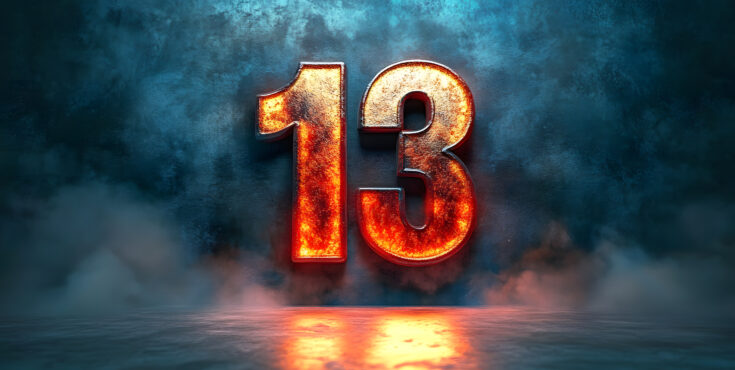Superstitions & Death: The History Behind Friday the 13th

For centuries, the number 13 has carried a shadowy reputation, but when paired with a Friday, it seems to send an extra chill down the collective spine. Friday the 13th remains one of the most infamous dates on the calendar. But where do these fears originate? And what role does death play in this enduring superstition?
A Fear Rooted in History
- The fear of the number 13 even has a name: triskaidekaphobia. Many ancient cultures considered 12 to be the number of completeness—12 months, 12 zodiac signs, 12 apostles. Thirteen, by contrast, was seen as irregular, unsettling, and out of balance.
The specific dread of Friday the 13th is a more recent cultural phenomenon, often traced back to both religious and literary roots. In Christian tradition, Jesus was crucified on a Friday, and the Last Supper had 13 individuals present—the 13th being Judas, the betrayer. The merging of these two associations—Friday and 13—has helped shape a superstition that persists to this day.
The Mortuary Connection
- As future professionals in the funeral and mortuary sciences, we know that death is a universal experience—one that should be treated with dignity, not dread. Yet, history shows how fear of the unknown has always influenced how people process death.
In medieval times, death was often seen as mysterious and malevolent. Superstitions filled the void of scientific understanding. People believed that certain days, numbers, or omens could attract death or bad luck. For instance, many were convinced that if 13 people dined together, one would die within a year. These beliefs often shaped behavior, rituals, and even the design of cemeteries and funeral rites.
Pop Culture and Modern Fears
- The superstition surged in popularity in the 20th century, partly due to popular fiction and film. Thomas W. Lawson’s 1907 novel Friday the Thirteenth exploited the date’s ominous reputation. Later, the horror movie franchise Friday the 13th (beginning in 1980) embedded the date even deeper into the cultural psyche, linking it directly to violent death.
Today, many people still feel uneasy when the calendar strikes Friday the 13th. Some businesses report decreased activity, and even funeral services may see families choosing different days for services to avoid the “bad luck” association.
Understanding Through Education
- At John A. Gupton College, we’re taught not only the science and ethics behind death care but also the cultural and emotional dimensions. Superstitions, while often unfounded, reveal a lot about societal attitudes toward death and the unknown. Understanding these fears allows us to better serve our communities with compassion, sensitivity, and informed care.
So, the next time Friday the 13th rolls around, take a moment to reflect—not just on the superstition, but on how we, as future funeral service professionals, can help demystify death and replace fear with respect and understanding.
Contact us at John A. Gupton College, 1616 Church Street, Nashville, TN 37203, or call us at (615) 327-3927
